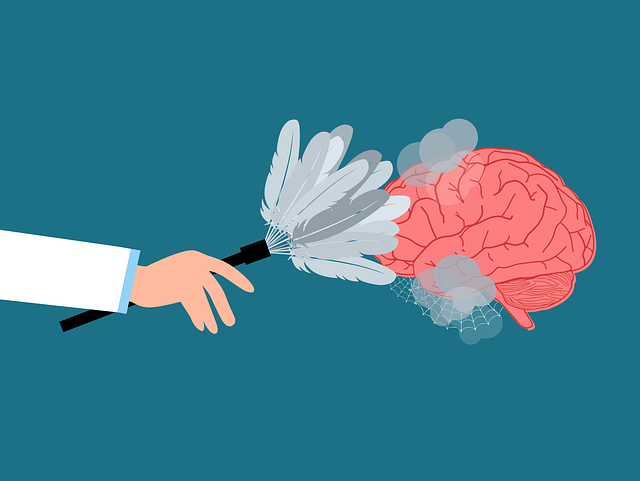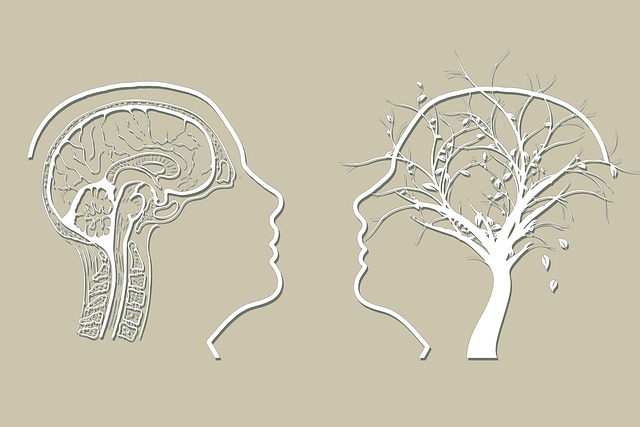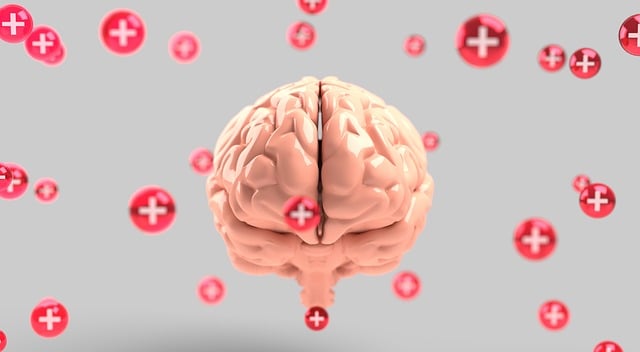Depression, caused by various factors like trauma, genetics, and environmental stressors, significantly impacts daily life. Broomfield Abuse Survivors Therapy (BAT) offers a tailored support system for trauma survivors, addressing past experiences to build resilience through therapy, stress management workshops, and self-esteem activities. Combining professional care with self-care practices, BAT empowers individuals to manage anxiety, cultivate healthy relationships, and develop long-term strategies for mental wellness. Open communication, empathy, and community initiatives like BAT, mental health education, and wellness podcasts create supportive networks, preventing depression and promoting overall well-being.
Depression is a prevalent yet complex condition, affecting millions worldwide. This article explores practical strategies to prevent and manage this mental health challenge. We delve into understanding depression’s underlying causes, emphasizing the importance of early intervention. Key focus areas include building resilience through effective coping mechanisms and self-care practices. Additionally, we highlight the beneficial role of professional support, specifically Broomfield Abuse Survivors Therapy (BAT), in treating and preventing depression.
- Understanding Depression and Its Causes
- Building Resilience: Coping Mechanisms and Self-Care
- The Role of Professional Support: Broomfield Abuse Survivors Therapy (BAT)
- Creating a Supportive Environment at Home and in the Community
Understanding Depression and Its Causes

Depression is a complex mental health condition that significantly impacts an individual’s daily life and overall well-being. It goes beyond fleeting feelings of sadness or melancholy; it’s characterized by persistent low mood, loss of interest in activities once enjoyed, changes in appetite and sleep patterns, fatigue, difficulty concentrating, and, in severe cases, suicidal thoughts. While the exact causes of depression are multifaceted and not entirely understood, various factors contribute to its development. These include genetic predisposition, brain chemistry imbalances, hormonal changes, traumatic life events, chronic illnesses, substance abuse, and environmental stressors.
Broomfield Abuse Survivors Therapy (BAT) recognizes that many individuals struggling with depression have experienced past traumas or adverse life circumstances. BAT emphasizes the role of therapy in processing these difficult memories and emotions to foster resilience building. Additionally, stress management workshops organized by various mental health organizations can equip people with coping mechanisms to navigate stressful situations. Moreover, focusing on self-esteem improvement through therapy, support groups, or personal growth activities can empower individuals to challenge negative thought patterns and beliefs that contribute to depression.
Building Resilience: Coping Mechanisms and Self-Care

Building resilience is a powerful tool in the prevention of depression and fostering mental wellness. It involves developing effective coping mechanisms to navigate life’s challenges. At Broomfield Abuse Survivors Therapy, we emphasize the importance of self-care as an essential aspect of building resilience. Encouraging clients to prioritize their mental health through activities like meditation, therapy sessions, or engaging in hobbies can significantly enhance their ability to cope with stress and adversity.
The journey towards better mental wellness is often facilitated by various resources such as the Mental Wellness Podcast Series Production, which provides accessible information and support. Additionally, Trauma Support Services play a crucial role in helping individuals process past traumas, thereby reducing the risk of depression. By combining professional therapy with self-care practices, individuals can create a supportive network to safeguard their mental health and overall well-being.
The Role of Professional Support: Broomfield Abuse Survivors Therapy (BAT)

Depression prevention strategies often include a range of tools tailored to individual needs. One such effective approach is Broomfield Abuse Survivors Therapy (BAT), designed specifically for those who have experienced trauma or abuse. This therapeutic method goes beyond traditional mental health education programs by offering a safe and supportive environment where survivors can process their experiences and develop coping mechanisms. BAT focuses on empowering individuals to rebuild their sense of self-worth and resilience, crucial components in maintaining mental wellness.
By engaging in Broomfield Abuse Survivors Therapy, participants gain access to specialized therapists who employ innovative techniques to address the complex needs of trauma survivors. This personalized approach not only helps in managing symptoms of anxiety relief but also fosters profound personal growth. Through BAT, individuals learn to navigate their emotional landscapes, cultivate healthy relationships, and develop strategies for long-term mental health maintenance, ultimately enhancing their overall quality of life.
Creating a Supportive Environment at Home and in the Community

Creating a supportive environment is a powerful tool in preventing depression and fostering mental well-being. At home, individuals can cultivate a safe space by prioritizing open communication and empathy within their families. Encouraging honest discussions about emotions and providing a non-judgmental atmosphere where loved ones feel comfortable sharing their struggles is essential. Simple acts of kindness, such as spending quality time together, offering assistance, and practicing active listening, can significantly contribute to an individual’s resilience against depression.
In the broader community, initiatives like Broomfield Abuse Survivors Therapy play a vital role in creating support networks. Mental Health Education Programs Design can equip individuals with knowledge about recognizing signs of depression and promoting early intervention. Additionally, Mental Wellness Podcast Series Production offers accessible resources for raising awareness and sharing recovery stories. Risk Management Planning for Mental Health Professionals is also crucial to ensuring practitioners have the tools to manage their own mental health while supporting others, thus fostering a collective commitment to community well-being.
Depression is a complex issue, but with the right strategies, prevention is achievable. By understanding its causes and building resilience through effective coping mechanisms and self-care, individuals can significantly reduce their risk. Seeking professional support, such as Broomfield Abuse Survivors Therapy (BAT), offers specialized care tailored to personal needs. Additionally, fostering a supportive environment at home and in the community further strengthens one’s mental well-being. Implementing these strategies holistically empowers individuals to take charge of their mental health and lead fulfilling lives.














